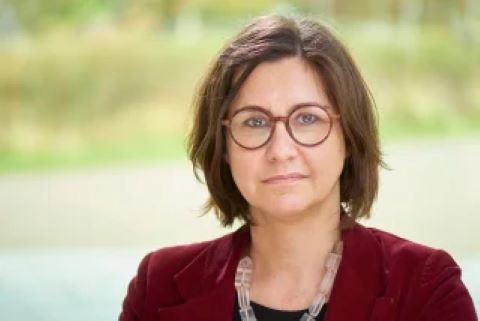Therapeutic Uses Of Dance: Contributions To the Mental Health and Wellbeing Of People Across the Life Span: VICKY KARKOU
VICKY KARKOU
Faculty of Health, Social Care and Medicine, Edge Hill University, Ormskirk, UK
Dance is currently receiving growing attention for its potential to contribute not only to physical but also to psychological health. Its value is reported in seminal publications from WHO (e.g., Fancourt and Finn 2019) and acknowledged by national clinical guidelines (e.g. NICE guidelines for schizophrenia and dementia). Publications such as the Oxford Handbook of Dance and Wellbeing (Karkou, Oliver and Lycouris 2017) explore how diverse forms of dance can contribute to the wellbeing of children, adults and older people. Some of these dance forms can be found in the community, education, hospitals, as well as in dance studios and theatres, offering a colourful picture of possibilities. However, further research is needed to explain mechanisms, key ingredients and establish specific psychological outcomes relating to the therapeutic value of dance.
This presentation will explore what we already know about the impact of dance on the brain and the body’s physiology, explaining some of the mechanisms of why dance may have an impact on improving wellbeing. It will also present results from systematic reviews and meta-analyses on outcomes such as depression and anxiety. Examples of specific studies will also be presented as illustrations of useful dance practice with vulnerable groups. Finally, the presentation will summarise some important features of engaging with dance practice with therapeutic benefit and make suggestions for future research in the field.
Vicky Karkou is the Director of the Research Centre for Arts and Wellbeing and an internationally known academic and researcher in the arts and arts psychotherapies. She joined Edge Hill University in 2013, originally as a Professor in Performing Arts and more recently as a Professor in the Faculty of Health, Social Care and Medicine where she contributes to the Faculty’s research agenda.
Lection Series „Musik & Medizin“
The Salzburg lecture series Musik & Medizin presents scientific and artistic contributions from leading international experts in various disciplines to explore the interactions and mechanisms between the experience, processing and psycho-physiological impact of music on humans and to understand how music may promote health and wellbeing.
The lecture is part of an interdisciplinary course where the referents discuss themes of their fields of research.
Idea & Direction Lection Series „Musik & Medizin“
Katarzyna Grebosz-Haring (Systematic Musicologist | Programme Area (Inter)Mediation, Focus Area Science & Art | University Mozarteum Salzburg / Paris Lodron University Salzburg).
In cooperation with Günther Bernatzky (Biologist | Paris Lodron University Salzburg) and Leonhard Thun-Hohenstein (Child and Adolescent Psychiatrist, Paracelsus Medical Private University Salzburg)
JOIN MEETING (Click to participate)






